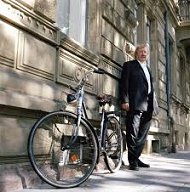
Arquivo para April 10th, 2015
Among the techniques and humanism
It would be a kind of technical human condition or was she separated from the man? Heidegger and Sloterdijk embraced this issue pirmeiro understanding that modernity has fulfilled one of his promises, opening new possibilities of being-in-world (one of the possible translations of Dasein), but after thousands of years man has a promise: to distinguish radically this world, not as an autonomous subject and away from his worldly circumstances, but how to be with other beings, animate or just things.
this issue pirmeiro understanding that modernity has fulfilled one of his promises, opening new possibilities of being-in-world (one of the possible translations of Dasein), but after thousands of years man has a promise: to distinguish radically this world, not as an autonomous subject and away from his worldly circumstances, but how to be with other beings, animate or just things.
The man also won dreamed what the realists no longer as having a high interior that could serve as shelter, fleeting in this world, where he could eventually choose here that wished to be, surpassing living animal, the zoe.
But if Heidegger stopped in his reflections on the technical modernity, one of several liquidity Bauman, it would release the man the edge of the abyss opened by rampant technical unveiling, Sloterdijk attempts to reach the other side without fear of seeing the art as made for ” improve man “of their immunological conditions.
So your antropotécnico arises, or the complement of that would be the onto-antropotécnico, not cyborgs beings and advancing technical about privacy and eye-to-eye human, using for this a concept of “foam”., which means that “society” can not be understood “outside”, thus following a hierarchical and general concepts, but view “inside” as a set of subcultures, communities and networks, forming a set of isolated units, but connected midiaticamente, which means technical forever.
On the contrary, it must be interpreted “inside” as a set of subcultures, communities and networks, a set of isolated units, but connected midiaticamente, which already involves the technique from the start, in a less philosophical language close to the young people: it isn’ t the world B.
It is by Heidegger’s notion of language as a house of being that man can come into existence by being the language (speech, in Being and Time) keeper of the truth of being. Man of the care process with their education (Bildung) in the exit towards clearing generates in Sloterdijk a antropotécnica, which is an onto-anthropology, or if you prefer a antropotécnica in the disturbed sense.
The young Argentine philosopher Fabian Ludueña, near the antropotécnica view of biopolitics and also the human condition Hannah Arendt defines it: “techniques by which communities of the human species and the individuals who compose act on their nature in order to guide, expand, modify, or taming its biological substrate in order to produce what that first philosophy and then the biological sciences and humanities often called ‘man’. ”
Ludueña, Fabian. O (des)governo biopolítico da vida humana, XI Simpósio Internacional IHU, 2010.
Sloterdijk, P. Rules for the human Zoo: a response to the letter of Heidegger on humanism. New York: Harper and Row, 2009.

